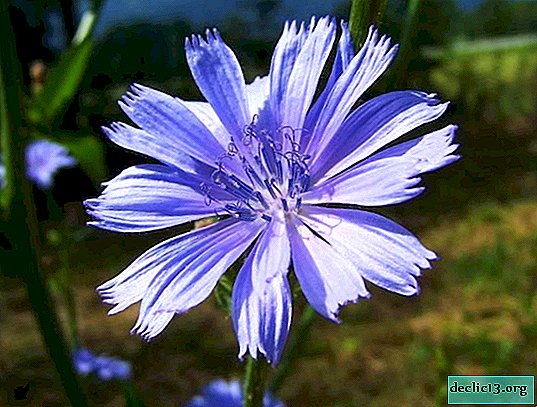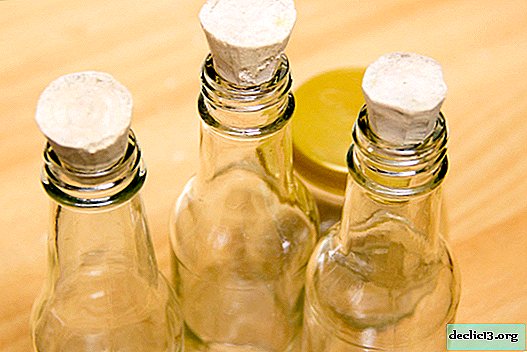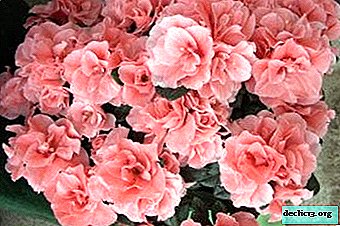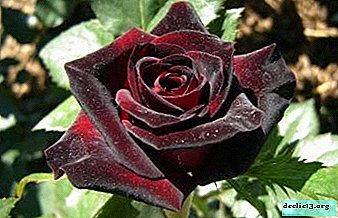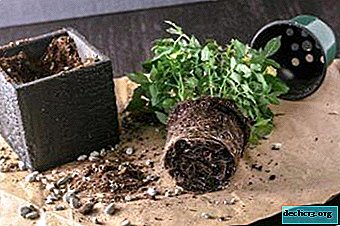How does pomegranate affect blood - dilutes or thickens it? Fruit Tips

Ripe and juicy pomegranate is a favorite fruit of children and adults. Who can refuse such a treat? And if he also finds out that pomegranate has not only excellent taste, but is also extremely useful for blood?
This article will focus on the beneficial properties of this exotic fruit, its chemical composition and use for the treatment of blood diseases. The recipes for preparing products to improve blood quality are described in detail.
Fruit benefits
Pomegranate juice contains a large amount of iron, so drinking juice stimulates the appearance of hemoglobin and red blood cells, which will be extremely useful for people suffering from anemia (anemia).That the fruit is fresh, that its juice contains the following minerals:
- Phosphorus.
- Chromium.
- Calcium.
- Magnesium.
- Silicon.
- Nickel.
 They, being part of the hematopoietic complex of minerals, will help improve blood circulation in the body. This is especially important for chronic fatigue and depression, as well as for pregnant women. Do not forget that the allergenic effect of pomegranate is less pronounced than that of citrus - Another reason to start using it during pregnancy.
They, being part of the hematopoietic complex of minerals, will help improve blood circulation in the body. This is especially important for chronic fatigue and depression, as well as for pregnant women. Do not forget that the allergenic effect of pomegranate is less pronounced than that of citrus - Another reason to start using it during pregnancy.
Finally, when using a fresh grant, a lot of fiber enters the body. In terms of fiber content, pomegranate leaves far behind most fruits. Fiber, preventing cholesterol from being absorbed in the intestines, cleanses the blood and reduces the risk of atherosclerosis.
The chemical composition of pomegranate (per 100 grams of fruit):
- Calorie content: 60-80 kcal.
- Vitamins: Vitamins of group B, vitamins E, C, R.
- Trace elements: chrome, nickel, aluminum, manganese, nickel, silicon, copper.
- Macronutrients: calcium, magnesium.
- 15 amino acids. About half of these amino acids are found only in meat products, so pomegranate is recommended not only to people suffering from blood diseases, but also to vegetarians.
- 5 fatty acids: palmitic, behenic, linolenic, oleic and stearic.
What affects the use of the fetus and in what diseases is it good to eat?
So, let’s summarize the effect of this fruit on the blood and figure out whether pomegranate juice liquefies it or thickens it.
Garnet:
- Thinning blood.
- Promotes the formation of hemoglobin and red blood cells.
- Improves blood circulation.
- It cleanses the blood.
Therefore, pomegranate should be used to treat and prevent the following blood problems:
- Anemia.
- Too thick blood.
- Problems with blood formation.
- For recovery after severe blood loss, as well as after surgery.
We offer you to watch a video about what the use of the fetus affects and in which diseases it is useful to eat pomegranate:
How to apply?
The beneficial properties of the fruit have been known since the time of Hippocrates, therefore, a great many ways to use pomegranate appeared.
Pomegranate juice
Against Anemia
 It will take a few pomegranate fruits. Quantity depends on size.
It will take a few pomegranate fruits. Quantity depends on size.
Half a glass of freshly squeezed pomegranate juice is drunk three times daily, each glass half an hour before a meal.
It should be noted that use only freshly squeezed juice, the store will not work.
Juice is taken no later than 30 minutes after squeezing, to preserve useful properties.
Against increased density
For those suffering from hypertension due to increased blood density, a yield of 50 ml of pomegranate juice drunk daily. Juice will help reduce excessive blood density and normalize blood pressure.Do not use several blood-thinning drugs in parallel, this may cause internal bleeding.
In conjunction with other ingredients
Lymph Cleanse
To prepare the mixture you will need:
- 150 gr beets;
- 150 gr lemons;
- 150 gr of honey;
- 150 gr cranberries;
- 150 gr carrots;
- 150 g pomegranate.
Cooking:
 Squeeze beet juice, leave it in the refrigerator for 3 hours.
Squeeze beet juice, leave it in the refrigerator for 3 hours.- Make juice from all other fruits and vegetables.
- Mix the resulting juices.
- Add honey to the mixture.
- Stir the mixture until smooth and leave in the refrigerator.
- When the mixture is over, do the same again.
Application: The course of treatment is 45 days;
- During the first 10 days, consume 50 ml of the mixture, after mixing it with 50 ml of boiled water, every morning on an empty stomach.
- Take a five-day break.
- Repeat the course twice more.
Picking with peel
For cooking you will need:
- Peel.
- Nettle.
- A series of.
- Leaves of a watch, forest raspberries and wild strawberries.
- Icelandic Moss.
- The fruits of dill and rose hips.
- Shadra.
- Celandine.
- St. John's wort
- Motherwort.
- 400 ml of boiling water.
Cooking:
- Combine all herbal ingredients in equal proportions.
- Pour 8 grams of collecting 400 ml of boiling water.
- Heat in a water bath for 15 minutes, then leave to infuse for 2 hours.
Application: Drink 200 ml of the collection three times a day before meals daily. Repeat for up to 4 months.
Contraindications
Like everything that heals, pomegranate can do much harm if used when not needed.Pomegranate is contraindicated:
 Suffering from peptic ulcers.
Suffering from peptic ulcers.- With gastritis.
- With pancreatitis.
- Children up to one year old (Children under 7 years old need to be diluted with water before drinking).
- Observe the norm in the use of this fruit, otherwise you can damage the tooth enamel.
- With hemorrhoids.
- With chronic constipation.
We offer you to watch a video about contraindications for the use of pomegranate:
Conclusion
As it has already become clear, pomegranate is as tasty as healthy. This delicacy can become not only a table decoration, but also an argument in the struggle for one's own health.

 Squeeze beet juice, leave it in the refrigerator for 3 hours.
Squeeze beet juice, leave it in the refrigerator for 3 hours. Suffering from peptic ulcers.
Suffering from peptic ulcers.